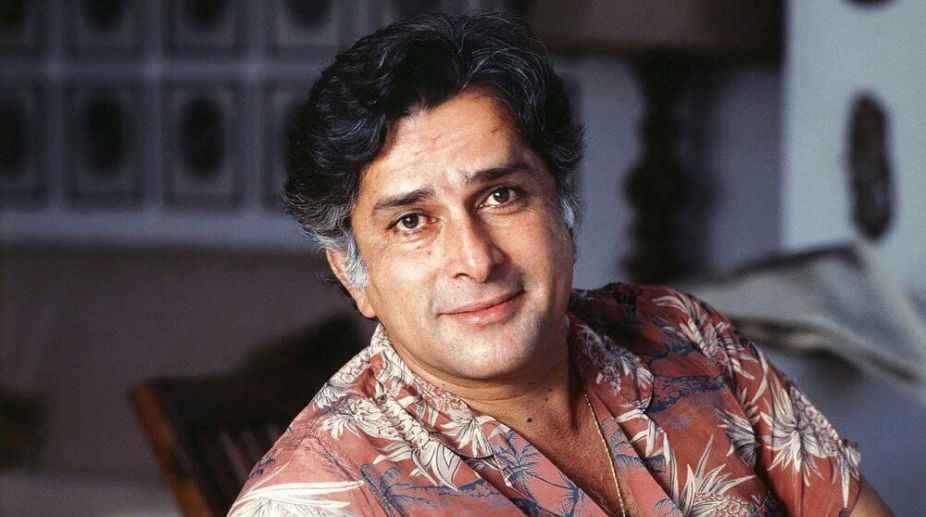‘Deewaar’ turns 50: Iconic film to get free screening in Mumbai!
Celebrate 50 years of Yash Chopra's 'Deewaar' with a special screening at Regal Cinema, Mumbai, on February 1. Free entry, first-come, first-served.

Shashi Kapoor (Photo Credits: Facebook)
No one could have imagined that an actor with such solid foundations in cinema could have connections that stretched far and wide. Whether it was the need to sustain the legacy of quality theatre in difficult times or working in a television series on the detective Feluda (an altogether unknown territory), one saw Shashi Kapoor sliding into varied commitments with energy and sense of purpose.
There was a natural movement into popular films with early hiccups till the turning point came with Jab Jab Phool Khile in 1965. What was evident was his ability to move from potboilers like Chor Machaye Shor and Chori Mera Kaam where he co-starred Mumtaz and and Zeenat Aman to the polished milieu of The Householder and Shakespearewallah, which gave him his first experience of international film festivals.
Advertisement
It was the dignified grooming and qualities of a thorough gentleman that perhaps enabled Shashi to fit into contrasting situations beginning as a child actor in Aag in 1948 till he retired in 1998 after Side Streets (one of the nine films he did with Merchant-Ivory) and Jinnah, the UK-based biopic where he was the narrator. As a member of the Kapoor family whose brothers had established themselves in the profession, Shashi probably had no other career option. What distinguished his cinematic consciousness was the liberal mind that stretched to several areas of artistic expression.
Advertisement
The seventies were the most productive phase. There was a particular year when around a dozen of his films were released. The magazines kept talking about the number of acting assignments, prompting Raj Kapoor to call him a “taxi” when they were making Satyam Shivam Sundaram. It was more of a media hype considering that the final tally of his films was never much more than his contemporaries like Rajesh Khanna and Amitabh Bachchan or even Vinod Khanna and Jeetendra. But where he made himself different was the calculated effort to mix entertainment with meaningful commitments. He combined a solo image in Prem Patra, Sharmilee and Pyar Ka Mausam with multi-starrers like Waqt, Roti Kapda Aur Makaan and the much-talked about Deewar. When it came to producing his own films, it was a territory far removed from lavishly mounted fantasy.
It was a different experience with Satyajit Ray, Shyam Benegal, Gulzar, Govind Nihalani and of course James Ivory and Ismail Merchant with whom he had a special connection after marrying Jennifer. Whether or not it was meant to escape the sustained glamour and glitz of Bollywood, Shashi made it clear that his personal inclinations lay elsewhere. When he set up his production house, the first film was Shyam Benegal’s Junoon, which was based on the Ruskin Bond story revolving around the 1857 mutiny. It went on to include films that were outside the mainstream circuit that had made him a star who could fit into formula with ravishing looks but without the muscle that some of his contemporaries could proudly claim.
Vijeta was directed by Govind Nihalani and introduced his son while it was anybody’s guess whether Aparna Sen could have finally made 36 Chowringhee Lane had Shashi not come forward to support the project. It was perhaps of a natural inclination to explore unknown territories and keep his artistic interests alive. He couldn’t stay away from assisting his brother Shammi who directed Manoranjan, a virtual copy of Irma La Douce.
Around the same time, he caused a stir at the 1975 international film festival in Delhi when he appeared opposite an unclad Simi Garewal in Conrad Rooks’ Siddharth based on the Herman Hesse novel. If he could engage in amazing adventures with Rajesh Khanna in Prem Kahani, he could do the same with Pierce Brosnan in The Deceivers. If he could excel as a popular star in Prakash Mehra’s 1968 blockbuster Haseena Maan Jayegi, he could perform with the same conviction as the honest journalist fighting corruption in political circles in Ramesh Sharma’s New Delhi Times. Critics may have regretted that he didn’t get as many opportunities to display the same skills in socially relevant settings but Shashi himself may have had no regrets. His professional integrity and pleasing personality extended to everything that he did.
Not all that he did fetched him the returns he may have wanted and the Indo-Soviet venture, Ajooba, which he directed, was a major disappointment. That did not move Shashi from the determination to provide a platform for talent in theatre as a tribute to his father, Prithviraj. The 200-seater Prithvi Theatre was never a commercially rewarding proposition but it gave fruitful opportunities to MS Sathyu, Naseeruddin Shah, Om Puri and Ratna Pathak Shah and many more even after his death. It could also have kept alive memories of Jennifer whom he had met on the theatre circuit in Kolkata when they were part of separate groups. The emotional connection with the city went far beyond stray events.
It extended from the locality where he was born to the countless meetings with Satyajit Ray while working on the Mechant-Ivory films, producing Aparna Sen’s first directorial venture and finally playing the detective in the television series, Satyajit Ray Presents. It had mixed results and the only Bengali film he had acted in was dropped midway. It made no difference to the bond and to the frequent visits till he was
Advertisement